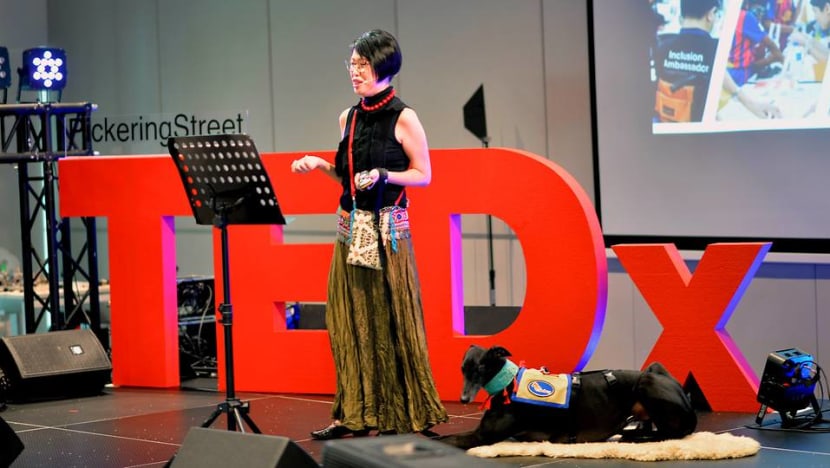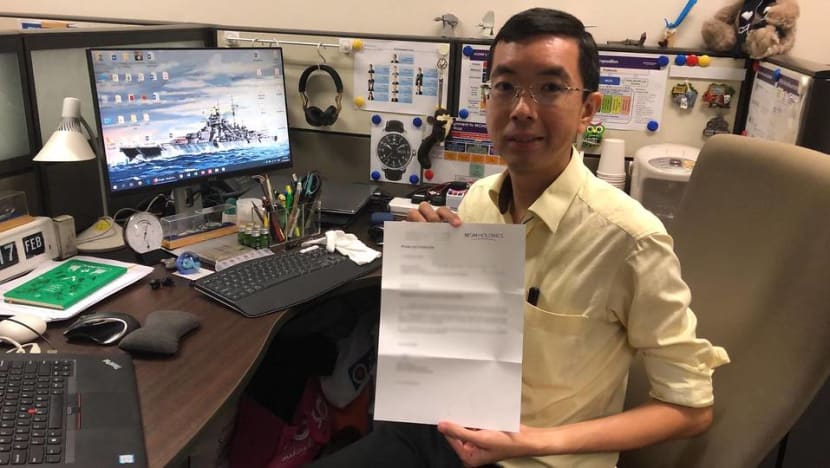Commentary: Does the word ‘autistic’ make you uncomfortable? It shouldn’t, says the community
We tend to assume that autistic individuals cannot perform basic tasks or have special abilities. The reality is more complex as we learnt when we worked on a series with ‘high-functioning’ autistics.

In speaking with autistic individuals, we realised they were articulate yet introverted, sensitive yet opinionated, friendly yet guarded — they had diverse personalities. (File photo: iStock)
SINGAPORE: After our feature on a married couple who learnt that autism, specifically Asperger’s syndrome, was behind the turbulence in their relationship, one of our friends texted: “I think a lot of guys have this AS”, plus a laugh-out-loud emoji. (We laughed back — we are only human.)
The husband seemed insensitive to feelings and social cues, and seemingly wanted to live in a virtual silo with his wife. She felt that he was being difficult and did not want to be a part of her life in which her friends and family figured prominently.
The story also drew comments like, “Could I be autistic?” or “This reminded me of Person X”. One stood out a mile: “Dating period and 10 years of marriage, and couldn’t try to find a chance to fix the relationship?”
Whether made in jest or in all seriousness, these remarks were underpinned by this sense that autism is a problem and that the label comes with a sting.
In fact, research states that “high-functioning” autistic individuals have a higher incidence of depression and propensity for suicide. We have also heard anecdotally of autistic folks choosing to remain undiagnosed or under the radar, for fear of stigma.
When we started on our series on autism, however, we were not unlike the average neurotypical person, with our own presumptions and jumping to conclusions. What was unexpected was the humbling experience of being schooled by those we spoke to.
THE PROBLEM WITH SAYING ‘HIGH-FUNCTIONING’
April was Autism Awareness Month, and the Government had grand plans to bolster support for autistic individuals in workplaces and schools, and to prepare them for independent living — all widely welcomed.
We wondered, however, where all the “high-functioning” autistic individuals were. Media portrayal of the autistic community is often one-dimensional, unfortunately. Many stories tend to portray autistic individuals with low neurological development, who need carers to assist in simple tasks.
Are the “high-functioning” autistic individuals doing fine? If so, what is their secret?
READ: She didn’t know she’d married a man on the autism spectrum. Neither did her hubby
READ: ‘I felt like an alien abandoned in this world’: An autistic man’s quest to be ‘human’
After we put out a call to speak to them, we learnt lesson number one. No, they are not all fine and dandy — and that has much to do with us calling them “high-functioning” in the first place.
When we asked for profiles in a Facebook group, some individuals flagged an issue with the label “high-functioning”: It was “problematic and offensive”. Some said the term “low support needs” was more acceptable.
We had the same blind spot when we wrote to several interviewees. We were corrected by Dr Dawn-joy Leong.
“These labels not only deprive autistics (of) the right kinds of support, they’re also ableist and measured according to non-autistic standards of what constitutes high or low functioning,” the autism researcher and multi-art practitioner responded to our interview request.
Are you a high-functioning neurotypical? Or a low-functioning Singaporean?
She is a living tale of having support needs unmet. In 2017, the programme On The Red Dot featured her story about being diagnosed with autism spectrum disorder (ASD) at the age of 42.
Another interviewee, Eric Chen, agreed that there was virtually no help for autistic adults like him. He obtained a diagnosis 20 years ago when he was 18. Before that, nobody stopped to think whether he was autistic, clumsy or merely eccentric.

It was only the beginning of our research, and we were flustered. “I feel like we’ll never get it right,” read one of our texts to each other.
So we turned to people like Dr Sajith Sreedharan Geetha of the Institute of Mental Health’s department of developmental psychiatry.
He said the term “high-functioning” was initially used to refer to the autistic individual’s intelligence quotient. Those without intellectual disabilities tend to be on that end of the autism spectrum.
“So it’s not a diagnostic label,” he said. “Not having intellectual disabilities doesn’t mean they’re functioning very well. They have difficulties in other areas like social relationships.”
They used to be diagnosed as having Asperger’s syndrome, but it was taken off the Diagnostic and Statistical Manual of Mental Disorders in 2013. Experts realised the distinction was inconsequential, said psychologist Jocelyn Chua, who works with autistic individuals.
But she added that those who identify themselves as having Asperger’s have difficulty accepting that this label is no longer official.
Agreeing, Dr Sajith said that “it’s seen as a ‘less disabling’ form of autism”, which may explain why some individuals or families hold on to the term.
The issue with labels, however, is not just about the term “high-functioning”.
PERSON WITH AUTISM OR AUTISTIC PERSON?
After we published our first story, on autistic professionals and workplaces that hire them, a reader asked us to amend our use of “autistic”, as she worked with autistic individuals and preferred to call them “individuals with autism”.
READ: The invisible struggle of people with high-functioning autism — and workplaces that hire them
Some professionals we corresponded with also suggested using “recovery-oriented language, which is to separate the illness from the individual”.
That was how we operated at first, having thought it was the best practice when writing about the disability. But it turns out that some autistic individuals feel the opposite.
“Autism is a neurological difference in functioning, not a disease. It’s also a neuro-cultural identity for the majority of us,” Dr Leong said by email.
Many who are like her prefer being called an “autistic person” or “autistic”, and research by American non-profit Autistic Self Advocacy Network points to the same findings.
This is known as identity-first language, which implies that autism is core to their identity. So we now use “autistic” unabashedly, unless our profiles prefer otherwise.
In person, Dr Leong said further that, unlike diseases such as cancer, where the individual could be healed, she and many autistic individuals do not see autism as a condition to be cured.
WATCH: Discovering at 42 that you're not ill, just autistic (3:00)
But embracing autism as key to who she was did not come easy. It came decades late.
SUICIDE RISK AND CAMOUFLAGING
Dr Leong was in Hong Kong pursuing a master’s when one day, she found herself standing on the window ledge of her ninth-floor apartment, looking at the moon.
There was turmoil in her family life, her father was dying and she had no close friends at the time. Her brief romantic relationship also turned out nightmarish.
When she snapped out of her dissociative state, she realised she needed psychological help.
“I (told the psychologist), I think I’m a bad person. I’m crazy. Everybody says I’m bad,” Dr Leong recounted. “So do something. Help me because I’m suicidal and (I want to) kill myself.”
She had been in an emotionally abusive relationship, she learnt, like many others she has had, whether romantic relationships or with friends and family. She always seemed to be blamed for problems that arise.

One “best friend” from school had actually bullied her and made use of her naivety for decades, she said.
“It was a normal thing for me. I thought it was my fault that I couldn’t get along. I was too this and that,” she said. After three sessions with her psychologist, she got an official diagnosis of ASD.
“My story isn’t uncommon,” she added. “In men, the bullying can be more physical, and for women, very relational, such as emotional blackmailing and gaslighting.”
Incidentally, United Kingdom-based BioMed Central stated in a 2018 study of 374 adults with autism (without language delay or intellectual disability) that 66 per cent had contemplated suicide, compared to 17 per cent in the general population and 59 per cent of patients with psychosis.
We also learnt that camouflaging was a particular issue in ASD. Dr Leong, for example, used to try to mimic others to fit in.
This makes it “very effortful for (autistic individuals) to be in the company of people”, said Dr Chua.
“Some of them might then choose to spend more time by themselves or spend time on the Internet or maybe have friendships online, so that it minimises the need for non-verbal cues.”

On top of that, “we’re a very fast-paced society”, she noted.
“The need for efficiency sometimes makes us demand that of ourselves and of others. When you’re under a lot of stress yourself, you might find that you aren’t very accommodating to someone who could be making you less efficient.”
In the end, it boils down to acceptance, the experts agreed.
“Increasing acceptance of autistic people in society could therefore lead to a reduced need for camouflaging and increased feelings of belonging — a protective factor for suicidality,” stated the 2018 study on suicide risk in autistic adults.
WHAT WE CAN DO
As journalists, it is convenient to think a story is done and dusted after the final full stop. But this project compelled us to go beyond raising general awareness or empathy.
So here are a few takeaways for better interactions with autistic individuals who have low support needs (i.e. “high-functioning” autistic individuals):
1) Interact with them based on their personality preferences, not their autism.
In one way that matters, autistic people are like you and me.
Over the couple of months that we spoke with them, we realised they were reticent, articulate, sensitive, introverted, opinionated, friendly, guarded — they had personalities too, and ‘being autistic’ is not one of them.

So we treated them as we would any interviewee we want to put at ease. When some of them indicated that they could be socially awkward, we met them one-to-one or in a quiet location where they would be more comfortable.
Sometimes we conducted interviews through texts or email to warm them up before meeting in person.
These accommodations were made not because of their autism but their discomfort with social settings. We would do the same for socially awkward neurotypical interviewees.
Another way to show acceptance during interaction would be to embrace their exceptional interests in things like buses and trains. “They often make this assumption that they aren’t part of this ‘normal’ world,” noted Dr Sajith.
My view is that we should consider autism as part of diversity in our population.
Neurodiversity is a term used to help us understand that all of us are different, and there is nothing wrong with that, Dr Chua said.
“(The reason) why people embrace that word is really the desire not to be perceived as weird, the desire to be accepted — that I’m still a part of you,” she added.
“We (may) have a certain stereotype of the individual and (his or her) difficulties, and we might forget that the individual is first a unique person. The diagnosis is just something in addition to the person.”
2) Be specific. No mind games, please.
Several interviewees mentioned their need for direct and literal communication, whether at work or in interpersonal relationships. Be clear and concise in communication and instruction, many of them told us.
This often means cutting out sarcasm, unspoken rules and words that have several meanings. Understanding these speech quirks is not an issue for the average neurotypical person — but autistic individuals might get confused.

While you may think it is too much hassle to spell everything out, being specific would ensure that everyone else is on the same page, with no room for misinterpretation of body language, social cues or vague instructions.
In social settings, a lack of ambiguity benefits everyone too. We can only imagine how many misunderstandings might not happen if everyone communicates with as much specificity as autistic individuals do.
3) Ask for their preference if you are unsure about which terms of address to use.
For a start, do not call them “quirky” or “weird”.
Dr Chua also cautioned against immediately classifying atypical folks as autistic. Autism is a developmental disorder usually diagnosed in childhood; for the adult patients she sees, a detailed analysis of their growing years is needed from them and their family to determine the disability.
READ: When we call people with strange behaviour mentally ill, we reinforce mental health stigma — a commentary
Next, even though the label “high-functioning” has been mainstreamed to communicate or classify different groups of needs effectively, and “person with autism” is well meant, using the wrong term could offend the autistic person or community.
Some others do not mind labels if there is no ignorance or harm meant. But it does not take a Herculean effort to ask autistic individuals for their preferences. And that gesture of empathy could make a world of difference.
Dr Chua hoped that “more people who are personally touched by ASD in their lives” can one day come out and advocate for themselves.
“They need to be the ones to embrace the ASD and … to tell others what it means to them and what help they’d like to have, and not be apologetic about it,” she said.
“However, in order for them to be able to do so, a lot of work (is needed) to help them have that confidence and also the sense of safety.”
So if autistic individuals correct you, or you think someone could be autistic, respond with empathy. After all, making mistakes is inevitable when learning (or unlearning) how to interact with them, and change does not happen overnight.
If we feel our defense mechanisms kicking in, turn to the words of American researcher Brené Brown: You are not here to be right, you are here to get it right.
Grace Yeoh is a senior journalist with CNA Insider. Christy Yip is a journalist with CNA Insider. If you’d like to join in a conversation next week on Twitter Spaces about a more inclusive understanding of the autism community, follow @GraceYeohCNA and @ChristyYipCNA for details of the event.

















